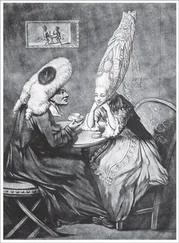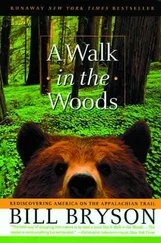Bill Bryson - Notes from a small Island
Здесь есть возможность читать онлайн «Bill Bryson - Notes from a small Island» весь текст электронной книги совершенно бесплатно (целиком полную версию без сокращений). В некоторых случаях можно слушать аудио, скачать через торрент в формате fb2 и присутствует краткое содержание. Жанр: Современная проза, на английском языке. Описание произведения, (предисловие) а так же отзывы посетителей доступны на портале библиотеки ЛибКат.
- Название:Notes from a small Island
- Автор:
- Жанр:
- Год:неизвестен
- ISBN:нет данных
- Рейтинг книги:4 / 5. Голосов: 2
-
Избранное:Добавить в избранное
- Отзывы:
-
Ваша оценка:
- 80
- 1
- 2
- 3
- 4
- 5
Notes from a small Island: краткое содержание, описание и аннотация
Предлагаем к чтению аннотацию, описание, краткое содержание или предисловие (зависит от того, что написал сам автор книги «Notes from a small Island»). Если вы не нашли необходимую информацию о книге — напишите в комментариях, мы постараемся отыскать её.
Notes from a small Island — читать онлайн бесплатно полную книгу (весь текст) целиком
Ниже представлен текст книги, разбитый по страницам. Система сохранения места последней прочитанной страницы, позволяет с удобством читать онлайн бесплатно книгу «Notes from a small Island», без необходимости каждый раз заново искать на чём Вы остановились. Поставьте закладку, и сможете в любой момент перейти на страницу, на которой закончили чтение.
Интервал:
Закладка:
If I haven't got a very clear image of the city, it's not entirely my fault. Manchester doesn't appear to have a very fixed image of itself. 'Shaping Tomorrow's City Today' is the official local motto, but in fact Manchester seems decidedly of two minds about its place in the world. At Castlefield, they were busy creating yesterday's city today, cleaning up the old brick viaducts and warehouses, recobbling the quaysides, putting fresh coats of glossy paint on the old arched footbridges and scattering about a generous assortment of oldfashioned benches, bollards and lampposts. By the time they have finished, you will be able to see exactly what life was like in nineteenthcentury Manchester or at least what it would have been like if they had had winebars and castiron litter bins and directional signs for heritage trails and the GMex Centre. At Salford Quays, on the other hand, they have taken the opposite tack and done everything they can to obliterate the past, creating a kind of miniDallas on the site of the oncebooming docks of the Manchester Ship Canal. It's the most extraordinary place a huddle of glassy modern office buildings and executive flats in the middle of a vast urban nowhere, all of them seemingly quite empty.
The one thing you have a job to find in Manchester is the one thing you might reasonably expect to see row after row of huddled Coronation Streets. These used to exist in abundance, I'm told, but now you could walk miles without seeing a single brick terrace anywhere. But that doesn't matter because you can always go and see the real Coronation Street on the Granada Studios Tour, which is what I did now along with, it seemed, nearly everyone else in the North of England. For some distance along the road to the studios there are massive wasteground car and coach parks, and even at 9.45 in the morning they were filling up. Coaches from far and wide from Workington, Darlington, Middlesbrough, Doncaster, Wakefield, almost every northern town you could think of were decanting streams of sprightly whitehaired people, while from the car parks issued throngs of families, everyone looking happy and good natured.
I joined a queue that was a good 150 yards long and three or four people wide and wondered if this wasn't a mistake, but when the turnstiles opened the line advanced pretty smartishly and within minutes I was inside. To my deep and lasting surprise, it wasactually quite wonderful. I had expected it to consist of a stroll up the Coronation Street set and a perfunctory guided tour of the studios, but they have made it into a kind of amusement park and done it exceedingly well. It had one of those Motionmaster Cinemas, where the seats tilt and jerk, so that you actually feel as if you are being hurled through space or thrown off the edge of a mountain, and another cinema where you put on plastic glasses and watched a cherishably naff 3D comedy. There was an entertaining demonstration of sound effects, an adorably gruesome show about special effects makeup and a lively, hugely amusing debate in an ersatz House of Commons, presided over by a troupe of youthful actors. And the thing was, all of these were done not just with considerable polish but with great and genuine wit.
Even after twenty years here, I remain constantly amazed and impressed by the quality of humour you find in the most unlikely places places where it would simply not exist in other countries. You find it in the patter of stallholders in places like Petticoat Lane and in the routines of street performers the sort of people who juggle flaming clubs or do tricks on unicycles and keep up a steady stream of jokes about themselves and selected members of the audience and in Christmas pantomimes and pub conversations and encounters with strangers in lonely places.
I remember once years ago arriving at Waterloo Station to find the place in chaos. A fire up the line at Clapham Junction had disrupted services. For an hour or so hundreds of people stood with incredible patience and implacable calm watching a blank departure board. Occasionally a rumour would rustle through the crowd that a train was about to leave from platform 7, and everyone would traipse off there only to be met at the gate by a new rumour that the train was, in fact, departing from platform 16 or possibly platform 2. Eventually, after visiting most of the station's platforms and sitting on a series of trains that went nowhere, I found myself in the guards' van of an express reputed to be departing for Richmond shortly. The van had one other occupant: a man in a suit sitting on a pile of mailbags. He had an enormous red beard you could have stuffed a mattress with it and the sort of worldweary look of someone who has long since abandoned hope of reaching home. 'Have you been here long?' I asked.
He exhaled thoughtfully and said: 'Put it this way. I was clean shaven when I got here.' I just love that.
Not too many months before this, I had been with my family to Euro Disneyland. Technologically, it had been stunning. The amount of money invested by Disney in a single ride would make any part of the Granada Studios Tour look like amateur night in a village hall. But it occurred to me now, as I sat in the immense conviviality of Granada's mock House of Commons debate, that not once at Disneyland had there been a single laugh. Wit, and particularly the dry, ironic, takingthepiss sort of wit, was completely beyond them. (Do you know that there isn't even an equivalent in American speech for 'taking the piss'?) Yet here in Britain it is such a fundamental part of daily life that you scarcely notice it. Just the day before at Skipton I had asked for a single to Manchester with a receipt. When the man in the window passed them to me he said: 'The ticket's free . .. but it's eighteenfifty for the receipt.' If he had done that in America, the customer would have said: 'What? What're ya saying? The ticket's free, but the receipt costs .18.50? What kind of cockamamy setup is this?' If Disney had had a House of Commons debate, it would have been earnest, hokey, frighteningly competitive and over in three minutes. The people on the two sides of the chamber would have cared deeply, if briefly, about coming out on top. Here, things were so contrived that there wasn't the remotest possibility of anyone's winning. It was all about having a good time, and it was done so well, so cheerfully and cleverly, that I could hardly stand it. And I knew with a sinking feeling that I was going to miss this very much.
The one place you don't find any humour on the Granada Studios Tour is on Coronation Street, but that is because for millions of us it is a nearreligious experience. I have a great fondness for Coronation Street because it was one of the first programmes I watched on British television. I had no idea what was going on, of course. I couldn't understand half of what the characters said or why they were all called Chuck. But I found myself strangely absorbed by it. Where I came from, soap operas were always about rich, ruthless, enormously successful people with $1,500 suits and offices high up in angular skyscrapers, and the main characters were always played by the sort of actors and actresses who, given a choice between being able to act and having really great hair, would always go for the hair. And here was this amazing programme about ordinary people living on an anonymous northern street, talking a language I could barely understand and never doing much of anything. By the time the first adverts came on, I was a helpless devotee.Then I was cruelly forced into working nights on Fleet Street and fell out of the habit. Now I am not even permitted in the room when Coronation Street is on because I spend the whole time saying, 'Where's Ernie Bishop? So who's that then? I thought Deirdre was with Ray Langton? Where's Len? Stan Ogden is dead?' and after a minute I find myself shooed away. But, as I discovered now, you can go years without watching Coronation Street and still enjoy walking along the set because it's so obviously the same street. It's the real set, by the way they close the park on most Mondays so that they can film on it and it feels like a real street. The houses are solid and made of real bricks, though, like everyone else, I was disappointed to peer in the windows and find through gaps in the curtains that they were empty shells with nothing but electrical cables and carpenters' sawhorses inside. I was a bit confused to encounter a hairdresser's salon and a pair of modern houses, and the Kabin, to my clear distress, was much smarter and well ordered than it used to be, but I still felt uncannily on familiar and hallowed turf. Throngs of people walked up and down the street in a kind of reverential hush, identifying front doors and peering through lace curtains. I latched on to a friendly little lady with bluerinsed hair under a transparent rain hat she seemed to have made from a bread wrapper, and she not only informed me who lived in which houses now, but who had lived in which houses way back when, so that I was pretty well brought up to speed. Pretty soon I found myself surrounded by a whole flock of little bluehaired ladies answering my shocked questions ('Deirdre with a toy boy? Never!') and assuring me with solemn nods that it was so. It is a profoundly thrilling experience to walk up and down this famous street you may smirk, but you would feel just the same and you know it and it comes as something of a shock to round the corner at either end and find yourself back in an amusement park.
Читать дальшеИнтервал:
Закладка:
Похожие книги на «Notes from a small Island»
Представляем Вашему вниманию похожие книги на «Notes from a small Island» списком для выбора. Мы отобрали схожую по названию и смыслу литературу в надежде предоставить читателям больше вариантов отыскать новые, интересные, ещё непрочитанные произведения.
Обсуждение, отзывы о книге «Notes from a small Island» и просто собственные мнения читателей. Оставьте ваши комментарии, напишите, что Вы думаете о произведении, его смысле или главных героях. Укажите что конкретно понравилось, а что нет, и почему Вы так считаете.












